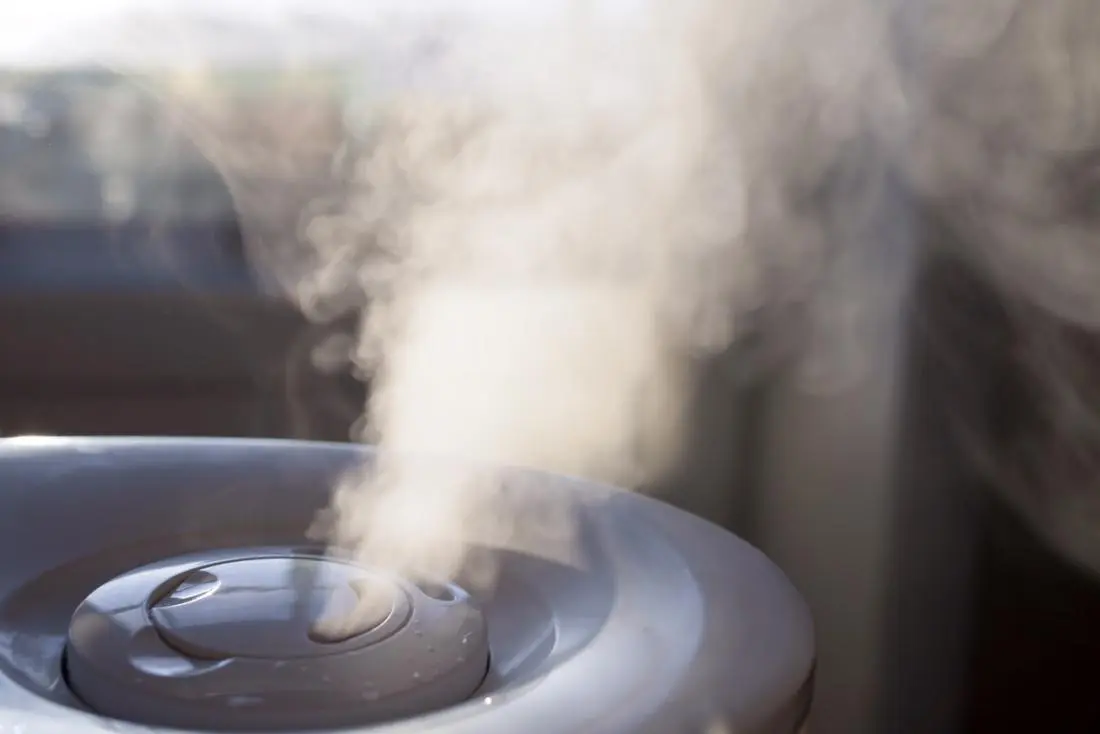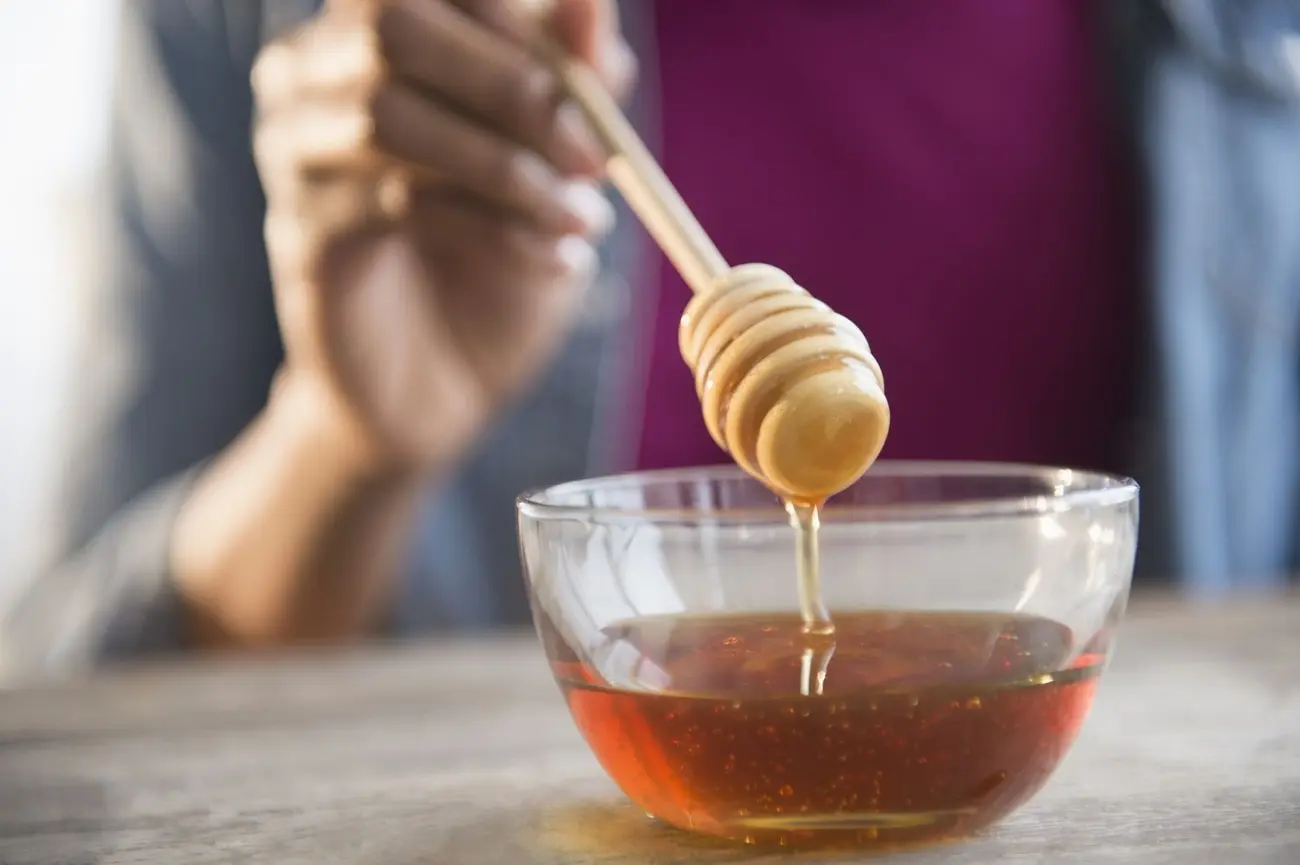Honestly, that annoying cough driving you mad? Want to know how to stop coughing naturally and save yourself weeks of feeling rubbish?
Most coughs do eventually clear up on their own, usually within 3 or 4 weeks. But wow, that wait can feel like forever when you can’t sleep properly or even focus during the day!
You’ll find doctors rarely dish out antibiotics for coughs. Why? Because most coughs are caused by viruses, not bacteria. And guess what? Natural remedies, like good old honey, have actually been shown to work even better than some standard treatments. Some research even says honey works just as well as common cough medicines!
So, whether you desperately need to stop coughing at night or just want to manage that tickle without reaching for medication, I’ve got some ideas for you here. This guide covers simple, natural ways that really work – from tackling those awful uncontrollable coughing fits to getting some quick relief.
Just a heads-up though: if your cough doesn’t start getting better after about 7 days, it’s worth getting it checked out. And coughs that drag on for more than 8 weeks might signal something else going on, like acid reflux or asthma, which definitely needs a doctor’s opinion.
This guide explores natural remedies that can really help soothe things while your body does its healing thing. Think warm drinks, ginger, and calming steam.
Quick Ways to Stop Coughing Immediately

Image Source: Medical News Today
Natural remedies can be fantastic for giving you quick relief from a persistent cough, often without the side effects you might get from medication. These simple solutions often target the root cause of that throat irritation and can help you stop coughing fast.
Use honey for fast throat soothing
That spoonful of honey might sound like something your nan would suggest, but believe me, science actually backs up this sweet trick for cough relief!
Studies have shown honey can work better than standard treatments to calm coughs, potentially helping you avoid needing antibiotics. Research even suggests honey is just as effective – sometimes more so – than common cough suppressants like dextromethorphan.
How does it work? Honey creates this lovely soothing layer over your irritated throat tissues, which helps calm down that annoying cough reflex.
For adults and children over one year old, try taking one teaspoon of honey roughly every couple of hours. You can use it in a few ways:
- Take a teaspoon straight up.
- Mix 1-2 teaspoons into a mug of warm water.
- Stir it into your favourite herbal tea or some warm lemon water.
Super important safety note: Never, ever give honey to babies under 12 months old. There’s a small risk of something called infant botulism.
Even the Mayo Clinic confirms that honey often works better than over-the-counter cough medicines. So, it’s definitely worth trying as your first line of defence against a stubborn cough!
Try steam inhalation for instant relief
Steam therapy is brilliant for quickly loosening mucus and soothing irritation in your nose and throat. Your body still needs time to fight off whatever bug you’ve got, but steam can make breathing so much easier while you recover.
Here’s how to get the most out of steam inhalation:
- Jump in a hot shower and just breathe deeply in the steamy bathroom air. Bliss!
- Create your own steam bowl: carefully pour hot water into a large bowl.
- Drape a towel over your head and the bowl (carefully!) to trap the steam inside.
- Gently breathe in the warm vapour for about 10-15 minutes.
Fancy an extra boost? Adding a few drops of eucalyptus oil to the steam acts as a great decongestant. Steam really helps melt away mucus, clear congestion, and open up your airways.
You can try steam therapy up to three times a day. I find it especially helpful just before bed to help get a better night’s sleep.
Okay, clinical studies show mixed results on steam therapy overall, but honestly, loads of people (including me!) find it really does help soothe throat irritation and calm coughing fits significantly.
Drink warm fluids to calm irritation
Ah, a warm drink! It just feels instantly soothing on an irritated throat, doesn’t it? Plus, the steam rising from the mug helps a bit too. Research actually shows that hot drinks can ease cold symptoms, especially coughs.
Some of the most effective warm drinks include:
- Clear broths – they hydrate and give you a bit of nourishment.
- Herbal teas – ginger or chamomile are particularly lovely.
- Warm water with a squeeze of lemon and a dash of honey.
- Decaffeinated black tea.
- Warm fruit juices (just watch the sugar content).
Ginger tea really stands out for me. This spicy root is known to help relax the smooth muscles in your airways. Just chop up some fresh ginger and let it steep in boiling water for 5-10 minutes. Lovely!
Warm liquids help thin out mucus, making it easier for your body to get rid of. They also keep you hydrated, which is super important for your immune system while it’s busy fighting off the cause of your cough. Good hydration is key, just like keeping your home environment healthy, maybe by using one of the best UK dehumidifiers if damp is an issue.
How to Stop Coughing at Night Naturally

Image Source: Medical News Today
Ugh, night coughs are the worst, aren’t they? They can properly wreck your sleep and leave you feeling exhausted the next day.
But don’t worry, there are several natural remedies you can try to help calm those annoying coughs that seem to kick off the minute you lie down. These ideas tackle the reasons coughs often happen at night, rather than just masking the symptoms.
Raise your head while sleeping
You know when you lie flat, all that mucus can gather at the back of your throat? Yep, that’s often what triggers those nighttime coughing fits.
Honestly, the quickest natural trick for how to stop coughing at night is simply to raise your head.
Experts suggest raising the head of your bed by about 6–8 inches. That little slope uses gravity to help stop mucus pooling in your throat. The result? Fewer coughing interruptions and hopefully, much better sleep!
Here are a few ways you can prop yourself up:
- Pile some extra pillows under your head and shoulders.
- Carefully place sturdy blocks or even bricks under the legs at the head end of your bed.
- Use a special wedge-shaped pillow designed for elevation.
- If you happen to have an adjustable bed frame, use that!
This simple trick can work well for different kinds of coughs, not just those annoying ones caused by GERD (gastroesophageal reflux disease). I also find that sleeping on my side, rather than my back, can sometimes help reduce nighttime coughing because mucus seems to drain away better.
Use a humidifier to moisten dry air
Dry air is a nightmare for coughs! It can really irritate your throat and nose, making nighttime coughing much worse.
Using a cool mist humidifier in your bedroom helps keep the air comfortably moist, which can soothe your airways. I find keeping the humidity level somewhere between 40% and 50% works best. Any higher, and you might risk encouraging mould growth, which can cause other breathing problems – definitely not what we want! You could even grab a cheap hygrometer (a little device that measures humidity) to keep an eye on the levels in your room.
Getting the right moisture balance is key, just like tackling damp in other parts of the home might require one of the best UK dehumidifiers.
Here are my top tips for choosing and using your humidifier safely and effectively:
- Cool mist types are generally safer than warm mist ones, especially if you have children or pets around.
- Use distilled or demineralised water if you can. Tap water often contains minerals that can build up in the machine or get dispersed into the air.
- Clean it out every three days or so, following the manufacturer’s instructions. This stops bacteria or mould growing inside – super important! Keeping appliances clean is always a good habit, like knowing how to clean your washing machine properly.
- Place the humidifier about 2-4 feet off the ground on a flat, water-resistant surface. This helps the moisture spread evenly around the room.
A clean, well-maintained humidifier helps thin out mucus, making it easier for your body to clear. Plus, it stops your nasal passages from drying out and getting those crusty bits that can trigger a cough during the night.
Don’t eat right before bed
What and when you eat can massively affect nighttime coughing, especially if you suffer from GERD (acid reflux). Other remedies might not work as well if you don’t address this bit.
Eating heavy or spicy foods too close to bedtime can cause stomach acid to splash back up into your throat, causing irritation and making you cough. Try to finish eating at least three hours before you go to bed. This gives your stomach plenty of time to digest before you lie down.
Some foods seem to be common culprits for making nighttime coughing worse, so you might want to avoid these in the evening:
- Dairy products (some people find they increase mucus production).
- Caffeine and alcohol (both can irritate the throat).
- Chocolate (this can be a trigger for GERD).
- Deep-fried and fatty foods (they slow down digestion and can increase reflux).
- Foods high in histamine (like aged cheeses, processed meats, spinach – these can potentially worsen inflammation for some people).
If you really feel like you need something before bed, stick to soothing options like clear broths, gentle herbal teas, or warm water with a little honey. These are much more likely to calm irritation rather than cause it!
Trying these three natural approaches – raising your head, using a humidifier correctly, and adjusting your evening eating habits – can make a huge difference to nighttime coughing and help you finally get some decent sleep.
Natural Remedies to Suppress a Cough

Image Source: Verywell Health
Need some natural backup to fight that stubborn cough? Forget just reaching for over-the-counter medicines; there are brilliant traditional remedies that can offer real relief, often without the side effects. These solutions get to the root cause of the irritation and can provide lasting comfort, helping you with how to stop coughing.
Ginger tea for dry coughs
Ginger is amazing! Its reputation as a powerful cough suppressant comes from its natural anti-inflammatory powers. This amazing root helps relax the muscles in your airways, making it easier to breathe and reducing that urge to cough.
Research suggests that ginger tea works wonders, especially for those irritating dry coughs, by reducing dryness and soothing your throat.
Here’s my favourite way to make a really effective ginger tea:
- Take about a 1-inch piece of fresh ginger root and slice it up (no need to peel if it’s clean!).
- Pop the slices in a mug or pot and pour over 1 cup of boiling water.
- Let it steep for 10-15 minutes – the longer you leave it, the stronger (and spicier!) it gets.
- Strain out the ginger pieces and drink the tea while it’s nice and warm.
- Feel free to add a squeeze of lemon or a teaspoon of honey for extra soothing benefits and flavour.
Ginger tea helps reduce inflammation in your throat and lungs, naturally clearing your airways. Studies back up ginger’s long history in traditional medicine as an effective cough treatment. Plus, it’s great for your immune system and can even help if you’re feeling a bit nauseous!
Saltwater gargle for throat irritation
Honestly, a simple saltwater gargle is such a powerful (and cheap!) way how to stop coughing naturally when it’s caused by a scratchy throat. This basic solution soothes irritation and helps break up the mucus that’s making you cough.
The science behind it is pretty cool – the salt helps draw excess water out of swollen throat tissues (reducing inflammation) and creates an environment that nasty bacteria don’t like.
For the best results, mix about ¼ to ½ teaspoon of salt into a glass (around 8 ounces or 240ml) of warm water until it dissolves. Take a mouthful, tilt your head back, and gargle gently, letting the solution wash over the back of your throat for 15-30 seconds. Swish it around your mouth too, then spit it all out. Don’t swallow it!
Repeat this a few times a day, especially after meals and before bed, until your throat feels better.
Marshmallow root for soothing the throat
Okay, let’s be clear – we’re not talking about the fluffy white sweets you toast over a campfire! Marshmallow root (the actual plant, Althaea officinalis) is an amazing herb that contains something called mucilage.
Mucilage is this thick, gel-like substance that works wonders by coating and calming irritated tissues in your throat. Think of it like a protective, soothing blanket for your sore throat!
This coating reduces inflammation and helps calm down that tickly urge to cough. Research supports this too – one study found that cough remedies containing marshmallow root significantly helped soothe dry coughs. Another showed that a whopping 90% of people felt that an herbal syrup with marshmallow root provided “good” or “very good” cough relief.
You can usually find marshmallow root as a tea, in lozenges, or sometimes in capsules. It often starts working quite quickly, bringing relief within about 10 minutes. If you’re making tea, letting the root steep in hot water for a bit longer helps release more of that beneficial mucilage into your drink.
How to Stop Uncontrollable Coughing Naturally

Image Source: Apollo Spectra
Those relentless coughing fits can really make daily life tough, can’t they? Simple things like having a chat or getting on with your day suddenly feel like a massive challenge.
These persistent episodes often mean your cough reflex has become overly sensitive and needs a bit of calming down. Understanding how to stop coughing when it feels uncontrollable often starts with looking at your surroundings and your habits.
Identify and remove irritants
Often, it’s something in your environment triggering those unstoppable coughing fits. Think perfumes, strong cleaning products, dust, pollen, cigarette smoke, or even just sudden changes in temperature. Breathing these things in can set off your cough reflex again and again.
You can try to reduce your exposure to these common irritants by:
- Getting rid of aerosols, air freshener sprays, and strong-smelling products in your home.
- Using a good air purifier with a HEPA filter – these are great at trapping allergens and dust particles.
- Keeping your home clean with non-toxic products to minimise dust build-up. You might find some useful general cleaning tips in my guide on how to clean your washing machine, as maintaining a clean environment helps overall.
- Trying to avoid sudden blasts of cold or hot air if possible.
- If you smoke, quitting is huge. Also, try to steer clear of secondhand smoke.
Research clearly shows a link between environmental irritants and severe coughing episodes. Finding out what your personal triggers are and removing them is often the very first step towards feeling better and figuring out how to stop coughing fits.
Practice controlled breathing techniques
There’s a clever technique sometimes called the “Stop Cough Exercise” or the “5 S’s technique” that can help calm down an oversensitive cough reflex. It’s a proven method that works by gently reducing airflow and keeping the air around your throat warm and moist.
Here’s how you can try to stop a coughing fit in its tracks:
- Smother: As soon as you feel that tickle starting, cover your mouth with your hand.
- Swallow: Do one conscious swallow to help calm the irritation.
- Stop: Gently hold your breath for about 5-10 seconds.
- Small: Now, take small, gentle breaths through your nose for about 30 seconds.
- Secret: Keep taking these tiny, quiet breaths – the idea is not to gulp air and trigger your throat again.
Try practising this technique at least 5 times a day when you first start. Healthcare pros often suggest practising with “pretend” coughs first, so you get the hang of it before a real coughing spell hits.
Stay hydrated throughout the day
Drinking enough fluids really helps your body manage coughing much better. Research confirms there’s a link between not drinking enough and having more severe coughing fits.
When you stay properly hydrated, your body can:
- Make mucus thinner, so it’s easier to clear from your airways.
- Prevent your throat from getting dry and irritated.
- Keep the protective mucus lining in your lungs working properly.
- Help your immune system fight off any infections causing the cough.
- Maintain a steadier heart rate, even during coughing episodes.
Aim for at least eight glasses of water throughout the day. It’s best to skip or cut down on caffeine and alcohol, as they can actually dehydrate you. I find mixing room temperature water with warm herbal teas during the day is a nice way to stay topped up.
Lifestyle Changes to Prevent Future Coughs

Image Source: Healthdirect
Okay, quick fixes are great for temporary relief, but making some smart lifestyle changes is the best way how to stop coughing from coming back again and again. Tackling the why behind the cough offers much better long-term protection for your respiratory health.
Quit smoking and avoid secondhand smoke
Honestly, if you smoke, stopping is the single best thing you can do to defend against chronic coughs.
Cigarette smoke damages the tiny hair-like bits in your airways called cilia. These little guys are meant to sweep out mucus and pollutants. Smoking paralyses them and coats your lungs in sticky tar, causing inflammation and that persistent smoker’s cough.
The amazing thing is, your cilia start to recover quite quickly after you quit and begin clearing out all the trapped gunk. This is why some people get a temporary “recovery cough” when they stop smoking – it feels annoying, but it’s actually a sign your lungs are healing!
Your circulation improves within weeks of quitting, and breathing problems usually decrease as your lung function can improve by up to 10% within about 3 to 9 months. It’s a massive win for your overall health.
Manage allergies and acid reflux
If allergies or acid reflux are triggering your cough, getting them under control is key. This often starts by identifying your specific triggers.
Common culprits can include chemicals in cleaning products or perfumes, dust mites, pollen, spicy foods, or even just breathing in cold air. If you suspect acid reflux is causing your cough, try to avoid eating for at least 3-4 hours before you go to bed.
Raising the head of your bed by 10-20cm (using books or blocks under the legs, not just pillows) can help stop stomach acid travelling up towards your throat while you sleep. Maintaining a healthy weight and wearing looser clothing around your waist can also make a big difference in reducing reflux-related coughing.
Strengthen immunity with probiotics and healthy diet
Did you know that probiotics (good bacteria) can actually help reduce respiratory infections that lead to coughing? Research has found that taking probiotics led to a significant reduction in upper respiratory tract infections and fewer antibiotic prescriptions needed. Specific types like Lactobacillus paracasei and Bifidobacterium animalis showed promising results in easing common cold symptoms.
Boosting your immune system with the right foods is also vital. Make sure you’re getting enough:
- Vitamin C: Found in citrus fruits, berries, peppers.
- Vitamin D: Found in fatty fish, eggs, and fortified milk/foods (and sunshine!).
- Zinc: Found in meat, shellfish, legumes (like beans and lentils), seeds, and nuts.
- Probiotics: Found in yogurt with “live and active cultures,” kefir, sauerkraut, kimchi, and other fermented foods.
Don’t forget the basics either – getting enough good quality sleep and fitting in some regular exercise are crucial, especially leading up to cold and flu season. Regular workouts might even cut your risk of catching a cold by 20-30%! This all-round approach helps tackle the underlying reasons for coughs, rather than just dealing with the symptoms when they hit. A healthy lifestyle supports everything, right down to needing the best electric toothbrush for good oral health, which is also linked to overall wellbeing!
Conclusion: Your Natural Path to Cough Relief
Wow, so we’ve explored quite a few natural ways how to stop coughing and find some relief! From the simple power of honey (often better than shop-bought medicines!) to the soothing effects of steam, warm drinks, and just propping yourself up at night, there are plenty of things you can try.
Ginger tea, saltwater gargles, and marshmallow root are fantastic natural soothers too.
But remember, the best way to make these natural remedies truly effective is to combine them with those smart lifestyle changes. Quitting smoking, managing allergies or reflux, staying hydrated, and boosting your immune system with good food and habits – these things build your body’s long-term defence against coughs. It’s all about tackling the cause, not just the symptom.
While these natural solutions are brilliant for most common coughs, always listen to your body. If a cough hangs around for more than a week without getting any better, or if you have a cough that lasts over eight weeks, it’s really important to see your doctor. It could be a sign of something else that needs proper medical attention.
So, next time a nasty cough tries to ruin your day (or night!), you’re armed with these natural approaches. Simple remedies like honey, ginger tea, or a saltwater gargle bring comfort to so many people. Your body has an amazing ability to heal – these natural methods just give it a helping hand while making you feel more comfortable.
Learning what works best for your specific type of cough can make all the difference. Taking this personalised approach will help you manage future coughs more effectively and keep your airways feeling healthier for years to come!
FAQs: Your Cough Questions Answered
Q1. What are some effective natural remedies for coughing?
Honey is fantastic – often works better than over-the-counter stuff! Ginger tea is great for soothing irritation, saltwater gargles can calm a scratchy throat, and steam inhalation helps loosen mucus. These natural remedies work by easing inflammation and calming that cough reflex.
Q2. How can I stop coughing at night?
Nighttime coughs are the worst! Try propping your head up with extra pillows or raising the head of your bed slightly. Using a humidifier to keep bedroom air moist helps too. Also, avoid eating heavy meals right before bed, especially if you get acid reflux. These simple tricks can really help you get more peaceful sleep.
Q3. Are there any quick ways to stop coughing immediately?
Yes! For quick relief when a coughing fit hits, try swallowing a spoonful of honey. Breathing in steam (like from a hot shower or a bowl of hot water) can offer instant soothing. Sipping warm fluids like herbal tea or warm water with lemon also helps calm things down fast.
Q4. How can I prevent recurring coughs through lifestyle changes?
Stopping coughs from coming back is all about lifestyle. If you smoke, quitting is the biggest step. Managing any allergies or acid reflux triggers is key too. Staying well-hydrated and boosting your immune system with a healthy diet (rich in probiotics, vitamins C & D, and zinc) makes a massive difference in preventing those persistent coughs.
Q5. When should I seek medical attention for a cough?
Most coughs clear up on their own. But definitely see a doctor if your cough lasts longer than a week without improving, or if you have a chronic cough that sticks around for more than eight weeks. These could be signs of an underlying issue that needs checking out.



